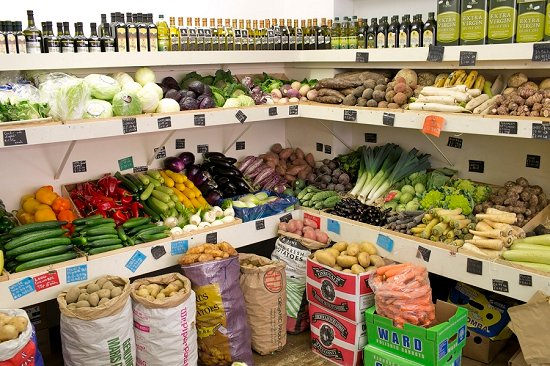 )
)Here in the USA we take food for granted. We enjoy easy access to food from all over the world, thanks to our modern "just in time" supply chain. Its' benefits are an extremely rich diversity of products from all around the world, availability of seasonal food all year long, reduction of the tax burden arising from keeping a large local inventory, and the increased efficiency that comes from centralization. But have you stopped to think about the negative affects?
Specifically have you have you ever thought about how the products in your local grocery store get there? Do you know much about the dwindling number of family farms or how difficult it is to run one and survive economically? Are you aware that your grocery store only has about a 3 day supply of food on hand locally? How can a community survive if that complex food supply chain were interrupted for a week, a month or even several months? People talk about how vulnerable our nation is to various threats, but few seem to realize how easily our food distribution system could be brought to a sudden standstill and how volatile a situation it would quickly become, especially in the cities.
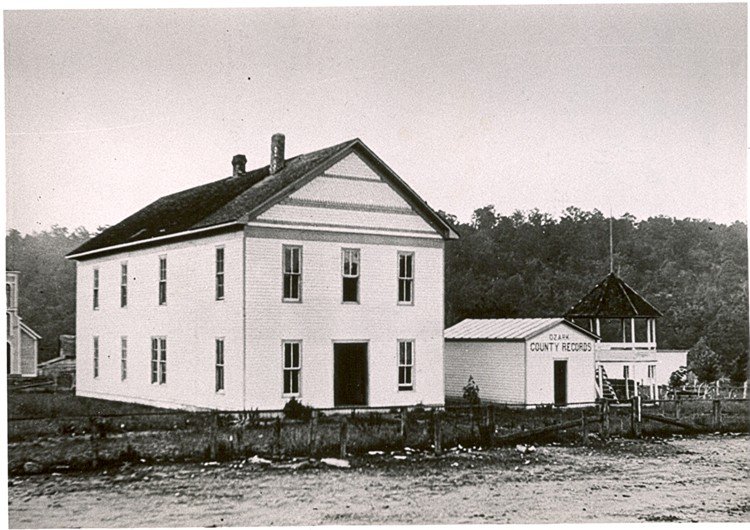
Here in Ozark County Missouri ONE grass roots group is making a difference. The Ozarks are one of the poorest, rural areas of the country. The population of the entire county is a mere 10,000 people, and a large percentage of them are elderly, retired or on welfare. There is little industry there besides cattle ranching. Most of the students that graduate move away to find employment and opportunities to earn a living elsewhere. The soil is rocky and extremely difficult to farm without intensive soil rejuvenation efforts which are time consuming and not without cost. However, despite the obstacles and daunting size of the task, ONE group has taken on the challenge of finding ways for the county (and ultimately all of Missouri) to return to a model of self sufficient food production. The name of that group is the Ozarks Neighborly Exchange, or O.N.E..
You may have heard about O.N.E. from James Corbett in his report on The Peer to Peer Economy, or his interview with Thomas Freedman.
 )
)There are about 60 members of O.N.E., referred to as "associates" in the organization's bylaws. The group was originally formed in late summer of 2011, but has undergone significant changes since those early days. The O.N.E. group is now in its' 3rd version, which started in November of 2013 and is now a 501c3 tax exempt organization.
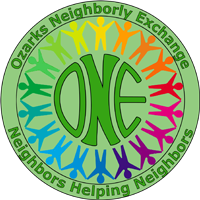
This will be the third year the group has produced sorghum molasas, and their efforts have attracted one local business owner to get involved and help O.N.E. in its' mission to feed the county, starting with a donation of land and the cost of a concrete foundation for a facility to cook and process the sorghum crop into the thick, golden brown, sweet syrup.
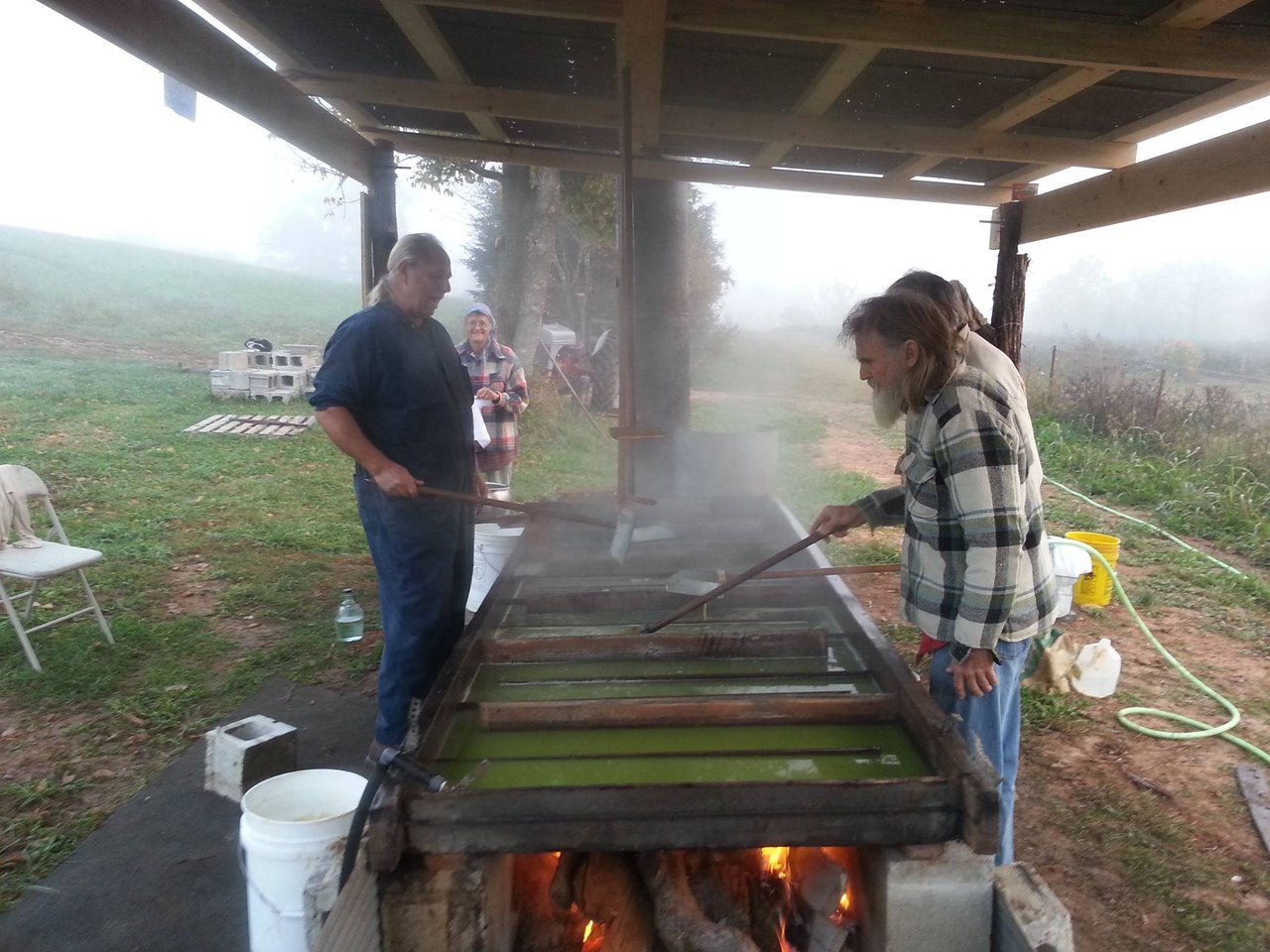
Sorghum is one of original food staples made by Ozark County residents. It is a very labor intensive process to harvest the sorghum cane and process it into the final product. It involves squeezing the cane in a horse powered press to free it's distinctively sugar rich juice where it must then be boiled in an open air slueth tray heated with a wood fire. Cooking sorghum long enough but not too long is almost a lost art these days. It requires a skillful hand to move the juice along the 10 foot long tray at just the right speed to the end where the thick sorghum is extracted. It is then put in glass containers and allowed to cool.
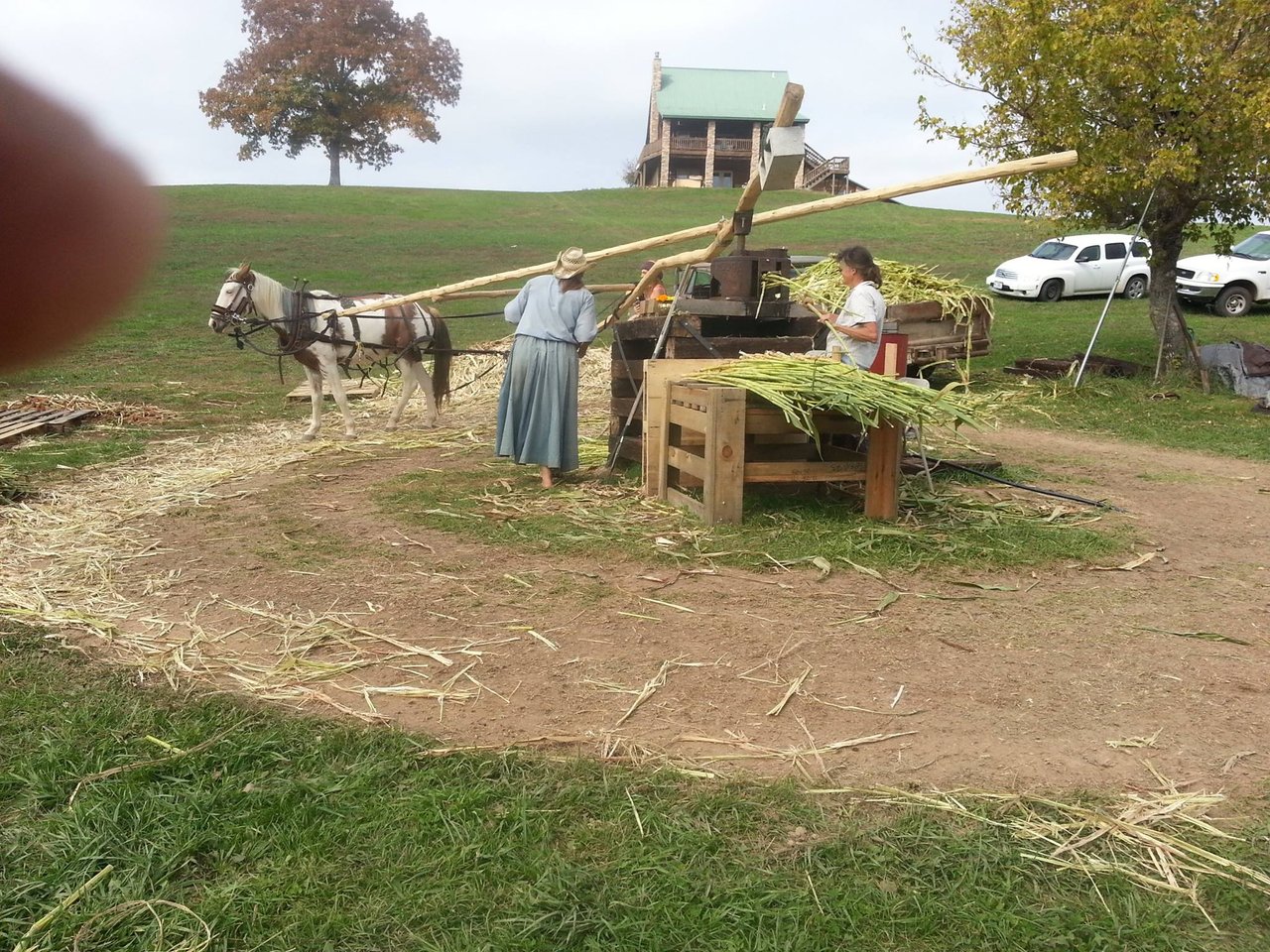
Previously the sorghum was grown and processed on the Woodpecker ranch, but that facility is difficult to get to and suffered a major loss due to fire last Christmas day, so the group needed to relocate. The owner of the local hardware store, a long time resident and highly respected member of Ozark County, got wind of O.N.E.'s desire to find a place close to town to relocate the operation. Plans have been drawn for the cook house and they are about to poor the foundation for it. A new stainless steel cook pan is currently under construction by a man in Tennesee who has decades of experience fabricating sorghum cook trays. Delivery is expected next month.
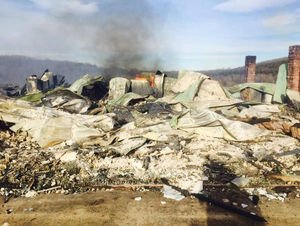
Back in February the sorghum committee of the O.N.E. group began to plan for the construction of a new facility located in Theodosia to process the sorghum. What emerged was a plan to create a tourist attraction and focal point for an annual festival around sorghum harvest time in mid October. There was a great deal to be accomplished if that vision was to come to fruition. Given the delays encountered it was decided to postpone the first Sorghum and Song Fest event until 2017, however the cook house facility is on track to be completed in time to process the sorghum crop now growing. In order to accomplish that O.N.E. needs to raise $7000 to cover the remaining cost of the stainless steel cook tray and the 20x40 foot cook house, which is basically a large, open (screened in) structure to keep bugs out and vent the heat away.
The group has a Go Fund Me campaign to raise the additional capital, but it hasn't gotten much traction yet. One reason is that most of the members of O.N.E. aren't very progressive when it comes to the Internet and social media. I'm hoping to change that with this post. You could say that I'm personally not very progressive when it comes to social media either, but in the last couple of weeks I see many new names being attracted to the Steemit platform, so it has pushed me to see what I can do with it. I have told the group I will donate any funds I raise here on steemit with this post to the sorghum project, so please upvote this post or go to the link above and contribute to the cause directly. I'll be updating steemit with progress as the project unfolds.
